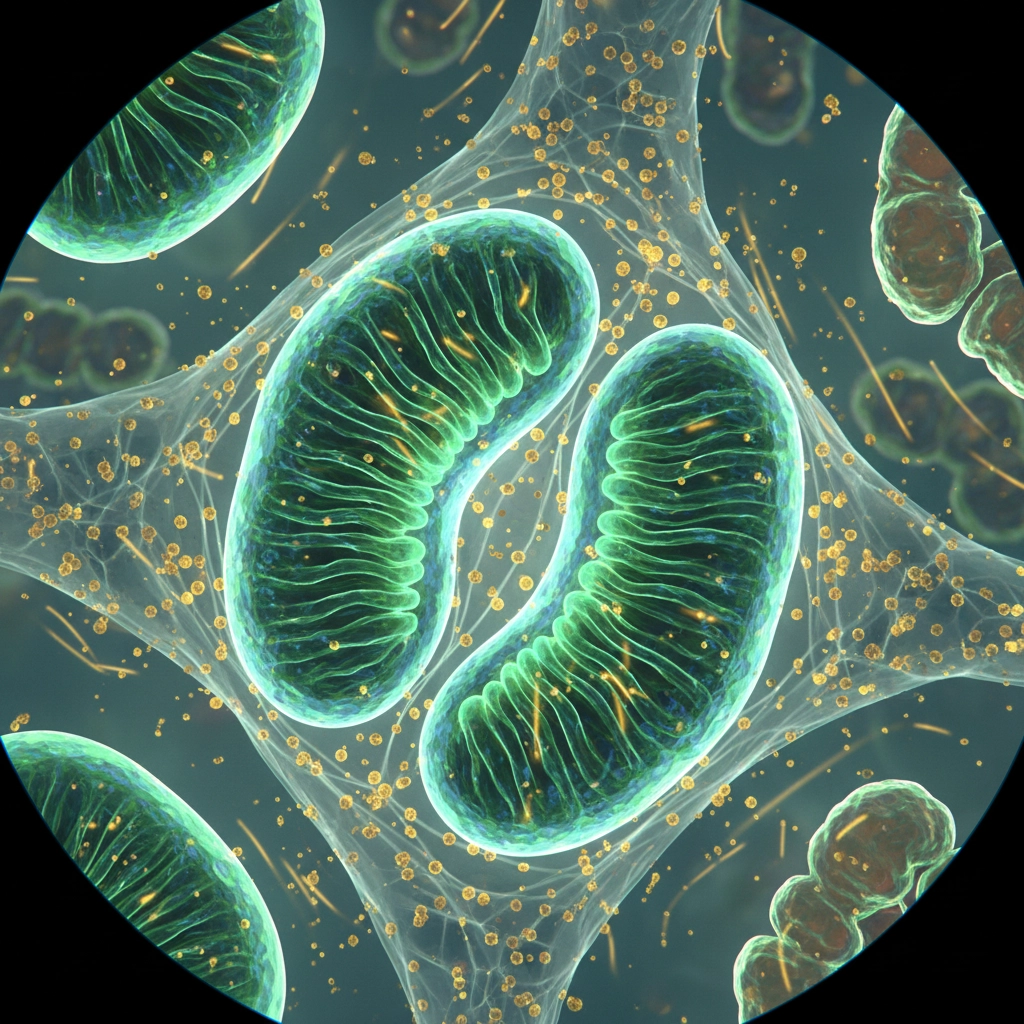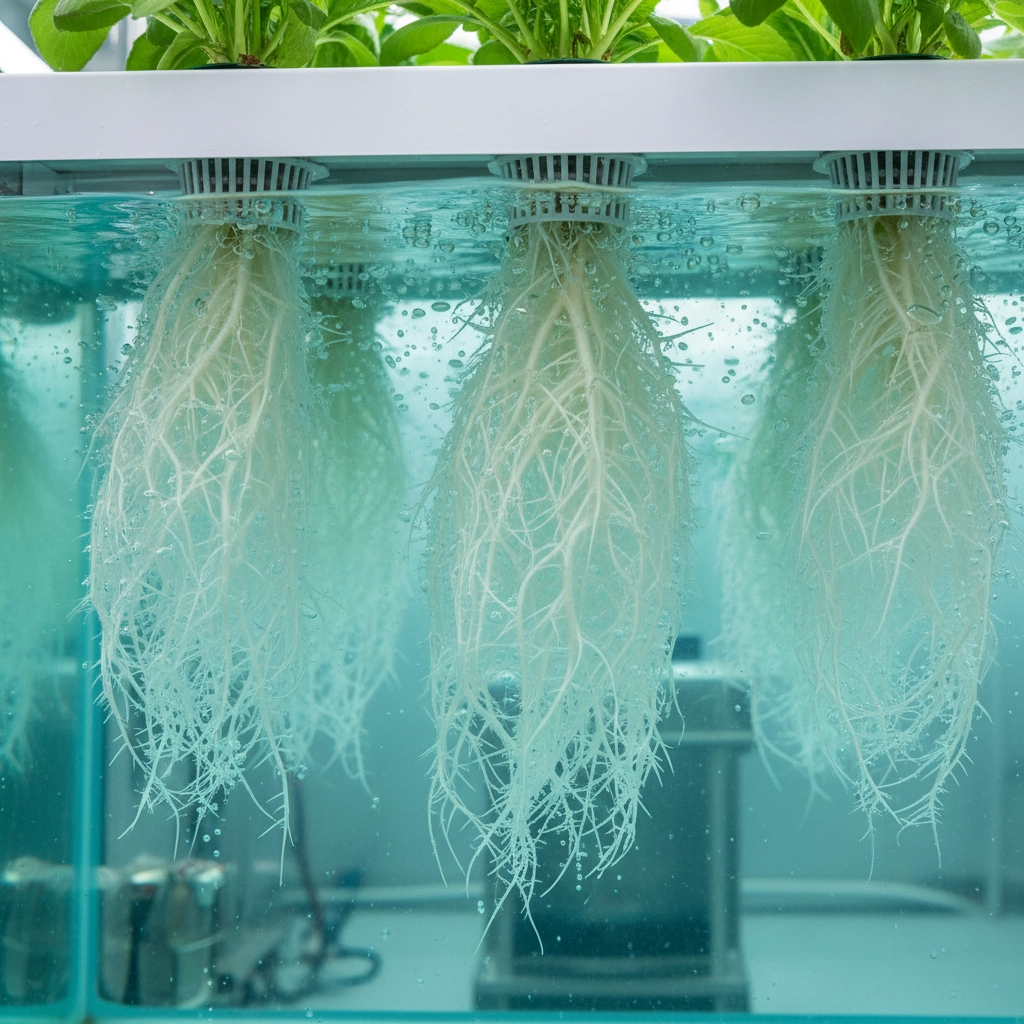Blog
The Krebs Cycle for Growers: Unlocking Plant Metabolism for Bigger Yields
Understanding plant biology at the cellular level might seem like overkill for most growers, but the Krebs cycle: also known as the citric acid cycle or TCA cycle: is the metabolic engine that directly impacts your harvest size and quality. When you know how this biochemical powerhouse works, you can make smarter decisions about nutrients, environmental conditions, and hydroponic systems that maximize plant performance.
The Krebs cycle isn't just academic theory. It's the cellular process that converts stored energy from photosynthesis into usable fuel for growth, reproduction, and stress resistance. Every time your plants build new leaves, develop roots, or produce flowers and fruits, the Krebs cycle is working overtime to provide the energy and building blocks needed for those processes.
What Exactly Is the Krebs Cycle?
The Krebs cycle operates as a series of eight chemical reactions that occur inside plant cell mitochondria. Think of it as a metabolic assembly line where organic compounds get systematically broken down to extract maximum energy while producing essential molecular building blocks.
Here's what makes this cycle so crucial: it takes the products of photosynthesis: primarily sugars: and converts them into ATP (adenosine triphosphate), the universal energy currency that powers every cellular function. But that's not all. The cycle also generates NADH and FADH2, high-energy electron carriers that fuel additional ATP production through the electron transport chain.
For every molecule that completes the cycle, your plants produce three NADH molecules, one FADH2 molecule, and one GTP (equivalent to ATP). This energy production directly correlates with growth rate, yield potential, and the plant's ability to handle environmental stress.

The Building Blocks Your Plants Actually Need
The Krebs cycle doesn't just produce energy: it creates the molecular precursors that plants use to build everything from cell walls to chlorophyll. Understanding these intermediate compounds reveals why certain nutrients and growing conditions matter so much for hydroponic systems and soil-based grows alike.
Alpha-ketoglutarate serves as a critical junction point for nitrogen metabolism and amino acid synthesis. This compound directly connects the Krebs cycle to protein production, affecting plant vigor, disease resistance, and the nutritional quality of your harvest. When plants can efficiently utilize nitrogen fertilizers, it's partly because alpha-ketoglutarate provides the carbon skeleton needed for amino acid synthesis.
Citrate becomes the starting material for fatty acid and sterol synthesis, essential for membrane formation in rapidly growing tissues. This explains why plants experiencing vigorous vegetative growth or rapid cell division need optimal metabolic conditions to maintain that pace.
Succinyl-CoA provides precursors for heme synthesis, a component necessary for both chlorophyll production and cellular oxygen transport. This creates a positive feedback loop: better Krebs cycle function supports better photosynthesis, which provides more substrate for respiration.
How Environmental Conditions Affect Metabolic Efficiency
The Krebs cycle operates under tight regulatory control that responds to both internal energy status and external growing conditions. Key enzymes including citrate synthase, isocitrate dehydrogenase, and alpha-ketoglutarate dehydrogenase act as metabolic checkpoints, speeding up or slowing down based on cellular signals.
Temperature management directly impacts cycle efficiency since all enzymatic reactions have optimal temperature ranges. Both heat stress and cold stress can impair cycle function, reducing energy availability precisely when plants need it most for growth or recovery.
Oxygen availability in the root zone critically affects the Krebs cycle since it depends on aerobic respiration. This is where hydroponic systems often have an advantage: properly designed hydroponic setups maintain optimal dissolved oxygen levels that support maximum metabolic efficiency. Waterlogged soil or poorly aerated growing media forces plants into less efficient anaerobic metabolism, directly reducing yield potential.

Nutrient Requirements for Optimal Metabolic Function
The Krebs cycle requires several cofactors and minerals to function properly, and deficiencies in these nutrients create metabolic bottlenecks that limit growth regardless of how much NPK you provide.
Magnesium serves as a cofactor for multiple cycle enzymes and is essential for proper cycle function. Magnesium deficiency doesn't just cause the familiar chlorosis: it impairs the fundamental energy production that drives all plant processes.
Manganese and iron also function as enzyme cofactors in various cycle reactions. Iron deficiency creates a cascade of metabolic problems because it's needed not just for chlorophyll synthesis but for the electron transport chain that depends on Krebs cycle products.
B-vitamins, particularly thiamine (B1) and riboflavin (B2), serve as components of enzyme cofactors required for cycle reactions. While plants can synthesize these vitamins, providing them through nutrient solutions can support optimal metabolic function, especially during periods of rapid growth or stress.
This is where products like Drops of Balance become valuable for hydroponic growers. By providing essential minerals and trace elements in bioavailable forms, you're supporting the cellular machinery that drives plant metabolism.

The Connection Between Metabolism and Yield Quality
Recent research has revealed that the Krebs cycle contributes to both quantity and quality aspects of plant yields. The cycle produces precursors for secondary metabolites that affect flavor compounds, nutritional content, and post-harvest shelf life.
Plants with well-functioning Krebs cycles show improved biotic stress responses, helping them defend against pathogens and pests naturally. This connection between primary metabolism and plant immunity means that optimizing metabolic function can reduce the need for chemical interventions while protecting yields.
The cycle's role in producing building blocks for protein synthesis directly affects the nutritional quality of edible crops. Leafy greens, herbs, and fruiting plants all depend on efficient protein synthesis for both structural growth and the production of enzymes, hormones, and other bioactive compounds.
Practical Applications for Hydroponic Systems
Understanding Krebs cycle function translates into several actionable strategies for hydroponic growers looking to maximize yields:
Maintain optimal dissolved oxygen levels in nutrient solutions. The cycle depends on aerobic respiration, so oxygen-starved roots immediately experience reduced metabolic efficiency. Air pumps, venturi valves, and proper solution circulation become investments in cellular energy production.
Monitor and adjust pH carefully since enzyme function depends on proper pH ranges. Most Krebs cycle enzymes function optimally in slightly acidic to neutral conditions, which aligns well with standard hydroponic pH management practices.
Provide complete mineral nutrition including micronutrients that serve as enzyme cofactors. This goes beyond basic NPK ratios to include the trace elements that enable efficient metabolic function.
Manage environmental temperature to support optimal enzyme activity. Both the root zone and canopy temperatures should stay within ranges that support maximum metabolic efficiency rather than just survival.

Timing Nutrition to Support Peak Metabolic Demand
Different growth phases place varying demands on the Krebs cycle, and understanding these patterns allows for more precise nutrition timing. During vegetative growth, the cycle primarily supports rapid cell division and tissue expansion. The demand for energy and building blocks is relatively steady but high.
Transition to flowering represents a metabolic shift where the cycle must support both continued vegetative growth and the initiation of reproductive structures. This is often when nutrient deficiencies become apparent: not because plants suddenly need more nutrients, but because metabolic demand has increased.
Fruit development and seed production place maximum demands on the Krebs cycle as plants divert resources from vegetative growth to reproductive efforts. The cycle must provide energy for transport processes moving nutrients to developing fruits while also supplying building blocks for oils, proteins, and carbohydrates that accumulate in harvested tissues.
Best Nutrients for Hydroponics: Supporting the Metabolic Engine
The best nutrients for hydroponics aren't necessarily those with the highest NPK numbers: they're formulations that support complete metabolic function including Krebs cycle efficiency. This means looking beyond primary macronutrients to include:
Chelated micronutrients that remain available across pH ranges and don't precipitate out of solution. Iron, manganese, zinc, and copper all play roles in metabolic enzyme function.
Organic acids and carbohydrates that can serve as additional substrate for the cycle during periods of high energy demand or limited photosynthesis.
Amino acids and protein hydrolysates that provide both direct nutrition and precursors for metabolic processes.
Quality nutrient lines designed for hydroponic systems typically include these components in balanced ratios that support optimal plant metabolism rather than just preventing deficiency symptoms.
Maximizing Metabolic Efficiency in Your Growing System
The Krebs cycle reveals why some growing practices work better than others. Consistent environmental conditions support stable enzyme function. Adequate nutrition provides necessary cofactors and substrates. Proper oxygenation ensures efficient aerobic metabolism.
Understanding this cellular process helps you evaluate growing methods based on their metabolic support rather than just their convenience or cost. Whether you're running a simple deep water culture system or a complex recirculating setup, the principles remain the same: support the cellular machinery that drives plant growth and you'll see results in both yield quantity and quality.
The next time you're fine-tuning your nutrient program or adjusting environmental parameters, remember that you're ultimately optimizing conditions for billions of microscopic metabolic reactions happening inside every cell. The Krebs cycle might be invisible, but its effects show up clearly in your harvest.
